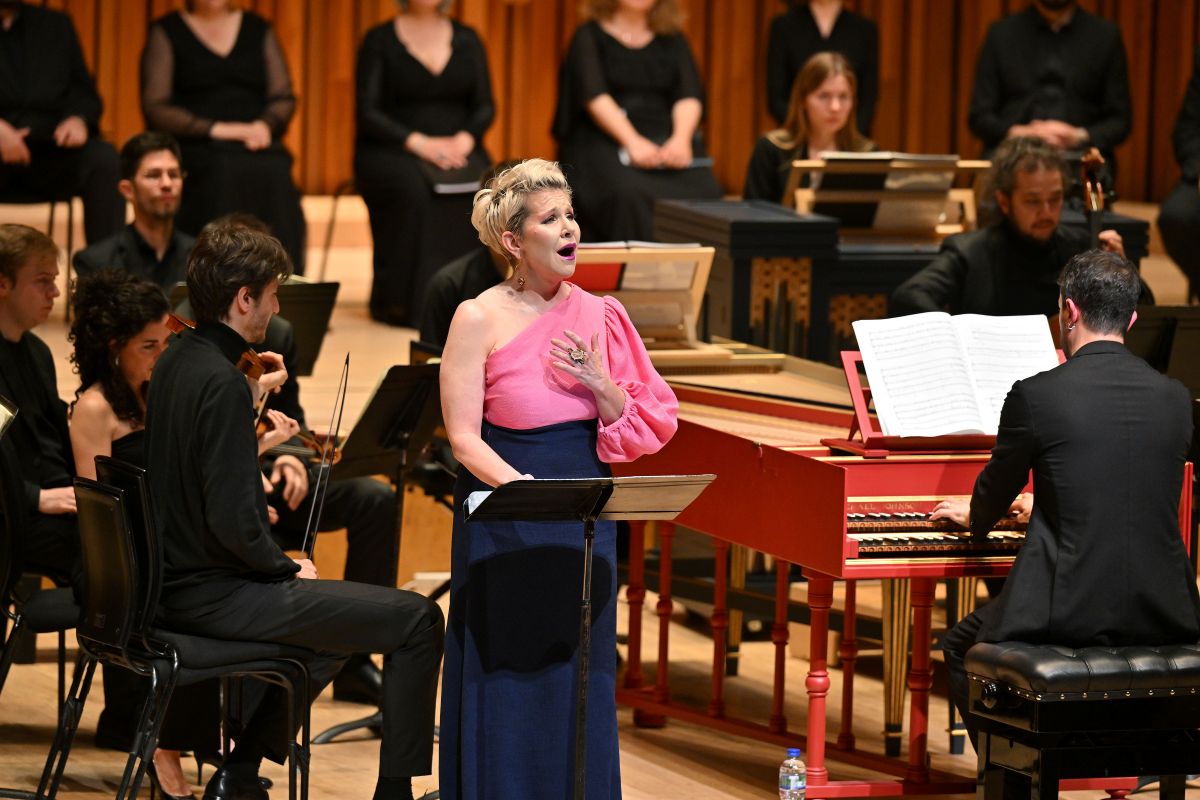For his final oratorio, Handel chose the Old Testament story of Jephtha, the Israelite leader who vows to sacrifice the first living being he sees if granted victory over the Ammonites. Like Idomeneo before him, Jephtha seals his fate with an oath to God. Tragically, it is his daughter Iphis who greets him first. Though she accepts her fate, she is ultimately spared when an Angel intervenes, declaring she must instead devote her life to God in perpetual virginity.
Handel composed Jephtha in just one month, while grappling with the onset of blindness. As his personal darkness closed in, so too does a haunting shadow fall over the music. After writing the chorus “How dark, O Lord, are thy decrees,” Handel noted in the score: “Reached here on 13th February 1751, unable to continue owing to the weakening sight of my left eye.”
Last year, the RBO presented a staged performance of Jephtha, which I reviewed at the time. This year’s concert version offered a distinctly different atmosphere, largely shaped by the use of period instruments from the ensemble Il Pomo d’Oro and a new cast of singers. The male performers appeared in dramatic black cloaks, evoking the biblical world.
American baritone Cody Quattlebaum brought warmth and authority to the role of Zebul. His voice was rich and evenly produced throughout the range. And worth noting—he has the longest hair I’ve ever seen on a male singer not in costume!
While Allan Clayton sang Jephtha in last year’s production, this performance featured American bari-tenor Michael Spyres. His interpretation brought a completely different vocal colour to the role. With a weightier low register and thrilling agility in the upper range, he offers a unique blend of power and finesse. His high notes burst forth like sunlight through clouds. The opening aria, “Virtue my soul,” showcased a warm tone and deft navigation of rapid coloratura—though notably, he chose not to include the traditional appoggiaturas. His rendition of “Deeper and deeper still… Waft her, angels” was a masterclass in legato, breath control, and emotional depth—a true highlight of the evening.
Joyce DiDonato, as Storgè, Jephtha’s wife, brought all her considerable artistry to bear. With silvery expressiveness, she spun a delicate mood in “In gentle murmurs.” Her standout moment came in “Scenes of horror, scenes of woe,” where she vividly conveyed the trauma of war with a palette of searing vocal colours. The impact was unforgettable, a lasting emotional imprint.
Last year’s countertenor Hamor was replaced this time by 24-year-old American contralto Jasmin White. Though not dramatically ideal for a staged version, her voice was nothing short of astonishing. Her rich, expressive lower register and bronzed tone throughout suggest a major career ahead—reminiscent of Marilyn Horne in her prime. While some of the coloratura is still settling, the potential is undeniable. Already part of the Wiener Staatsoper’s young artists programme, she is a star in the making.
As Iphis, Mélissa Petit delivered an admirable performance. Her lighter, smaller soprano—remarkably free of any trace of a French accent—handled the florid passages of “The smiling dawn of happy days” with ease. Her farewell aria, “Farewell, thou busy world,” was tender and poignant.
The duet between Iphis and Hamor was musically thrilling, both voices navigating the intricate coloratura in perfect unison.
Italian soprano Anna Piroli, as the Angel, brought a bright, clear tone to her aria “Rise, Jephtha.” She made the coloratura seem effortless and added stylish da capo variations that sparkled.
A lovely final touch: all the soloists joined the chorus at the back of the stage for the closing number, reinforcing the oratorio’s communal spiritual weight.
Barbican Hall – 7th May 2025
Music by Georg Friedrich Handel (1685–1759)
Libretto by Thomas Morell
Conducted by Francesco Corti
Period Instrument Ensemble: Il Pomo d’Oro
First performed: 26 February 1752, Covent Garden Theatre, London
Running time: 3 hours 10 minutes (including one interval)
Photo Credit: Marc Brenner
Cast:
Joyce DiDonato – Storgè
Michael Spyres – Jephtha
Cody Quattlebaum – Zebul
Jasmin White – Hamor
Mélissa Petit – Iphis
Anna Piroli – Angel

